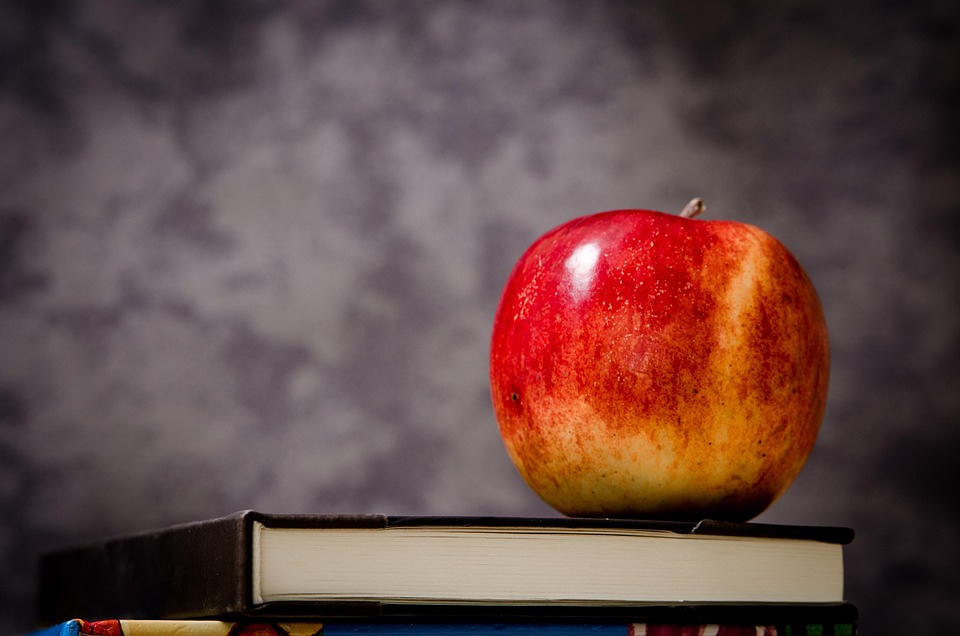Brain focus fruits are the handful of fruits proven to sharpen attention, steady your moods, and feed your neurons. They’re not trendy superfoods; they’re honest, flavorful allies you can buy at a market, slice onto yogurt, or eat on the run. If your days are noisy, your to-do list long, and your attention frayed, these fruits give you measurable benefit—fast.
Why this matters to you: attention is the first step toward getting anything done. If you want clearer thinking, fewer distractions, and steadier energy without caffeine crashes, the right fruits can help. Science backs this up, and real-life routines prove it. Let’s walk through the seven best brain focus fruits and how to use them so your brain performs like you know it can.
Contents
- 7 Brain Focus Fruits To Boost Attention
- 1. Blueberries, Tiny Powerhouses For Memory
- 2. Strawberries, Sharp Thinking, Sweet Taste
- 3. Avocados, Healthy Fat That Fuels Focus
- 4. Oranges, Quick Vitamin C For Brain Alertness
- 5. Pomegranates, Antioxidant Shields For Neurons
- 6. Apples, Fiber And Flavonoids For Lasting Energy
- 7. Bananas, Potassium And B-Vitamins For Mental Drive
- What Science Says About Brain Focus Fruits
- Bottom Line
- FAQ
7 Brain Focus Fruits To Boost Attention
1. Blueberries, Tiny Powerhouses For Memory
Blueberries are the classic brain fruit. They’re packed with flavonoids, especially anthocyanins, which help reduce inflammation and support communication between brain cells. Studies at places like the University of Florida show that regular blueberry consumption improves memory and learning in older adults and younger people alike.
Eat them fresh on cereal, blend a handful into a morning smoothie, or keep frozen blueberries for a quick boost. A cup a day is practical and effective. Blueberries also stabilize blood sugar when paired with protein, which keeps attention steady through the morning.
2. Strawberries, Sharp Thinking, Sweet Taste
Strawberries bring vitamin C and flavonoids that protect neurons and promote clear thinking. Clinical research suggests strawberry intake relates to slower cognitive decline over time, particularly in executive function—the part of the brain you use to focus and organize.
Snack on strawberries with a small handful of nuts for a brain-boosting mini-meal. Their bright flavor wakes the senses and their antioxidants help you hold your attention longer during work or study sessions.
3. Avocados, Healthy Fat That Fuels Focus
Avocados are not traditional “fruits” people associate with sweetness, but they deserve a spot on this list. Their monounsaturated fats improve blood flow and support a steady release of energy. Better circulation means more oxygen and glucose reach the brain, which equals better attention.
Add avocado to toast with an egg, toss cubes into salads, or blend it into a savory smoothie. The creamy texture and satiating fats mean fewer sugar spikes and fewer midafternoon fogs.
4. Oranges, Quick Vitamin C For Brain Alertness
Oranges deliver a fast dose of vitamin C, which plays a role in neurotransmitter production and protects the brain from oxidative stress. Research published by major health institutions connects adequate vitamin C levels with improved mental performance.
A whole orange or a glass of fresh-squeezed juice in the morning can sharpen your alertness. Pair it with a protein source to avoid a quick sugar crash and keep that bright-headed feeling longer.
5. Pomegranates, Antioxidant Shields For Neurons
Pomegranates are rich in polyphenols that reduce inflammation and may protect the hippocampus—the part of the brain tied to attention and memory. Animal studies and emerging human trials suggest pomegranate compounds slow cognitive decline and support recovery after brain stress.
Add pomegranate seeds to salads, breakfast bowls, or yogurt. A splash of pomegranate juice in water offers a delicious way to sip antioxidants throughout the day.
6. Apples, Fiber And Flavonoids For Lasting Energy
An apple a day is cliché for a reason. Apples provide fiber and quercetin, a flavonoid linked to improved concentration and protection against neurodegeneration. The fiber slows digestion, which prevents blood sugar spikes and supports consistent mental energy.
Keep apples at your desk. Eat them whole with a smear of nut butter for a balanced mini-meal that keeps attention steady between lunch and later meetings.
7. Bananas, Potassium And B-Vitamins For Mental Drive
Bananas are easy, portable fuel. Their potassium supports nerve signaling and their B-vitamins assist in energy metabolism—both crucial for sustained attention. A banana before a demanding task supports reliable cognitive performance.
Pair a banana with Greek yogurt or almonds to balance carbs with protein and fat, preventing mid-task dips and maintaining clearer, sharper focus.
What Science Says About Brain Focus Fruits
Researchers have linked flavonoid-rich fruits to improvements in attention and working memory. Longitudinal studies from universities and medical centers show that people who regularly eat fruits like berries and apples have slower cognitive decline and better executive function later in life.
For immediate effects, controlled trials show that a single serving of berries can improve attention and memory for hours afterward. Institutions such as Harvard Health publish accessible summaries explaining how antioxidants and vascular health work together to support cognition. When you choose the right fruits, you’re choosing both short-term clarity and long-term brain protection.
How To Build A Daily Brain-Focused Routine
Start simple. You don’t need a pantry full of exotic items—just consistent, smart choices.
- Begin your day with a fruit that balances quick energy and nutrients: a banana or orange paired with protein.
- Mid-morning? A small cup of blueberries or strawberries with yogurt keeps attention steady.
- Lunch should include healthy fats like avocado to maintain blood flow and focus.
- Snack on an apple or a handful of pomegranate seeds in the afternoon to avoid the slump.
Make a weekly plan: buy two kinds of berries, a bag of apples, a bunch of bananas, and avocados that ripen across the week. This keeps your routine simple and sustainable.
Combining Fruits With Smart Habits For Maximum Benefit
Fruits do more for focus when paired with other habits. Hydration, sleep, and movement are non-negotiable.
- Drink water with your fruit to aid digestion and cognitive performance.
- Get at least 7 hours of sleep to consolidate the benefits of nutrients.
- Move regularly—short walks increase blood flow and prime your brain to use the nutrients you eat.
When you combine brain focus fruits with these habits, your attention won’t just improve for an hour—it will become more reliable day after day.
Practical Tips For Buying, Storing, And Preparing
Buy produce that fits your rhythm. Berries freeze well and are just as nutritious as fresh. Avocados can be bought slightly under-ripe and left on the counter. Citrus stores easily and provides predictable servings.
Prep in batches: wash and portion berries into containers, slice apples with lemon to prevent browning, and pre-mash avocado with lime and salt to have a quick spread. When access is easy, healthy choices become the default choices.
Bottom Line
Your diet can be your fiercest ally for attention. Simple, everyday choices—like reaching for blueberries, strawberries, avocado, oranges, pomegranates, apples, and bananas—deliver antioxidants, healthy fats, vitamins, and fiber that support attention now and brain health later. Eat these brain focus fruits regularly, pair them with protein and water, and combine them with sleep and movement. Do that, and you’ll notice your ability to focus improve in real, practical ways.
You don’t need perfection. You need a practical routine that respects your life and rewards your brain.
FAQ
Are Frozen Berries As Good As Fresh?
Yes. Frozen berries are often frozen at peak ripeness and retain most of their nutrients, including flavonoids. They’re a convenient, affordable option that works well in smoothies and oatmeal.
How Much Fruit Should I Eat To Improve Focus?
Aim for two to three servings of fruit daily, focusing on at least one serving of berries or another flavonoid-rich fruit. Pair fruits with protein or healthy fats to stabilize blood sugar and maximize attention benefits.
Can Fruit Replace Supplements For Brain Health?
Fruit is a powerful, whole-food source of nutrients and should be your first choice. Supplements may help in specific cases, but they don’t replace the broad benefits of whole foods, fiber, and phytonutrients found in fruit.
Is Fruit Sugar Bad For My Focus?
Whole fruit contains fiber that slows sugar absorption, so it typically won’t cause the same crashes as processed sugars. Pair fruits with protein or fat to further minimize spikes and support steady focus.
Visual Line
References
National Institutes of Health provides accessible research summaries on dietary flavonoids and cognitive function (https://www.nih.gov/news-events/nih-research-matters/dietary-flavonoids-cognitive-health).
Harvard Health explains how antioxidants in berries support brain health and reduce inflammation (https://www.health.harvard.edu/mind-and-mood/foods-linked-to-better-brainpower).
The Journal of Nutrition published findings on berry consumption and improvements in cognitive performance (https://academic.oup.com/jn/article/148/9/1506/5535756).
Cleveland Clinic shares practical guidance on fruits, sugar, and brain health (https://health.clevelandclinic.org/how-fruit-affects-blood-sugar/).
University of Florida research highlights blueberries’ role in memory and learning (https://news.ufl.edu/2019/04/blueberry-study/).
Get Your FREE Natural Health Guide!
Subscribe now and receive our exclusive ebook packed with natural health tips, practical wellness advice, and easy lifestyle changes, delivered straight to your inbox.




